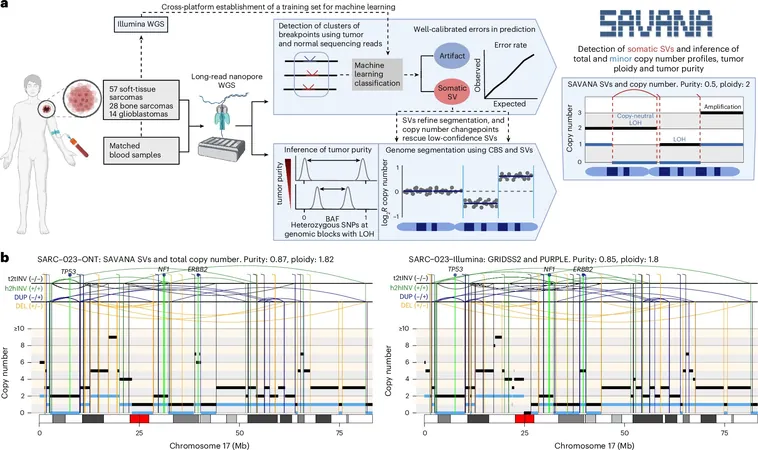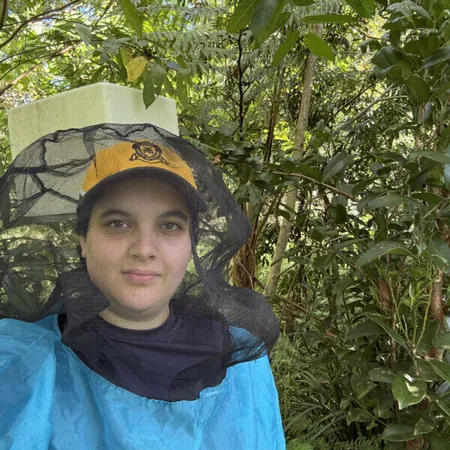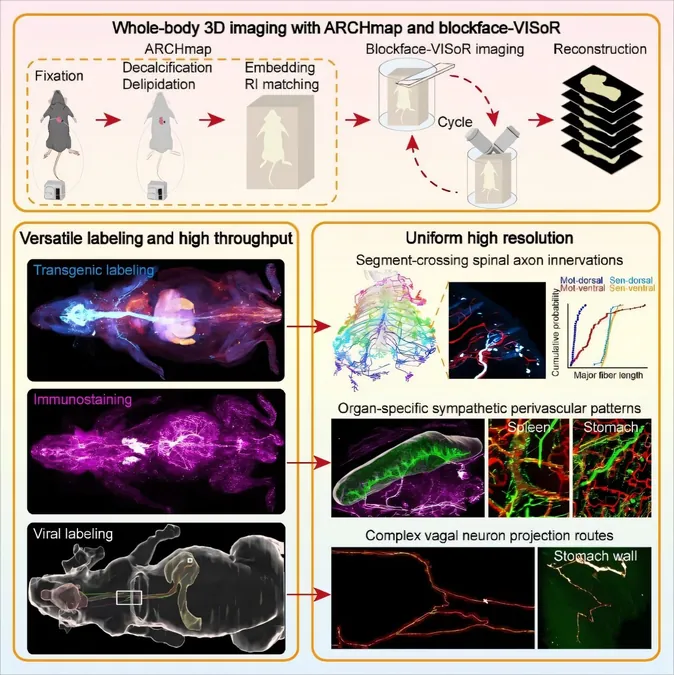
Revolutionizing Cancer Diagnostics: How SAVANA is Transforming Long-Read Sequencing
2025-05-29
Author: Jia
Long-Read Sequencing: A Game Changer for Cancer Genomics
Imagine peering into the intricate world of DNA and uncovering the secrets that could change the course of cancer treatment. Long-read sequencing technologies have the potential to revolutionize how researchers detect complex genetic alterations in cancer genomes. However, existing analysis tools often struggle to keep up, leading to misleading results that can severely hinder our understanding of tumor evolution and treatment responses.
Introducing SAVANA: The Smart Algorithm for Cancer Genomics
Enter SAVANA, a groundbreaking machine learning algorithm detailed in the journal *Nature Methods*. This innovative tool is designed to precisely identify structural variants—major genomic changes such as insertions, deletions, and rearrangements—within cancer genomes using long-read sequencing data.
To put it simply, using SAVANA is like using a spoon to eat soup instead of a fork. It is precisely crafted to tackle the unique complexities of cancer genetics, ensuring reliable and accurate results.
Developed by Leading Experts
The SAVANA algorithm was developed by a team of researchers at EMBL's European Bioinformatics Institute (EMBL-EBI) in conjunction with Genomics England and clinical partners including University College London (UCL) and Boston Children's Hospital. By testing it across 99 human tumor samples, they aimed to create an analysis tool that directly accounts for the unique challenges presented by cancer genomics.
Isidro Cortes-Ciriano, a Group Leader at EMBL-EBI, emphasized the importance of SAVANA: "Other tools often generate false positives, leading to misguided clinical interpretations. SAVANA changes the game by differentiating between actual cancer-related changes and artifacts from the sequencing process, providing a clearer picture of the genetic underpinnings of cancer."
Optimized for Clinical Environments
Hillary Elrick, a prominent researcher at EMBL-EBI, explained that SAVANA not only offers sophisticated genomic analysis but is also practical enough for everyday clinical use. It can accurately detect somatic structural variants and other critical genomic features, paving the way for personalized cancer treatments.
In fact, SAVANA's rapid data analysis has already shown promise in studying osteosarcoma—a rare and aggressive bone cancer primarily affecting young people—leading to the discovery of new genomic rearrangements that could influence treatment strategies.
Setting New Standards in Cancer Diagnostics
The results from SAVANA have displayed remarkable consistency when compared with conventional Illumina sequencing methods, establishing it as a reliable alternative that can unveil additional cancer-related alterations. Professor Adrienne Flanagan from UCL stated, "SAVANA's ability to accurately detect structural variants marks a transformative shift in clinical diagnostics, allowing for more tailored treatment options for cancer patients."
A National Investment in Genomics
As part of the NHS Genomic Medicine Service, the UK is heavily investing in genomic sequencing technologies to enhance diagnostic accuracy and support personalized cancer treatments. However, the success of these initiatives depends on having specialized analytical tools like SAVANA for precise and reliable genomic data interpretation.
Greg Elgar from Genomics England pointed out that implementing SAVANA could enable healthcare providers to seamlessly integrate advanced long-read sequencing techniques into routine patient care.
Addressing Cancer Disparities
Furthermore, SAVANA is being utilized in various national initiatives, including the UK Stratified Medicine Pediatrics project, which aims to develop better treatments for childhood cancers. It is also part of the SAMBAI project, focused on tackling cancer disparities within African heritage populations.
Through SAVANA, the field of cancer genomics is poised for a revolutionary shift that promises more accurate diagnoses and effective, personalized treatment plans for patients battling cancer.





 Brasil (PT)
Brasil (PT)
 Canada (EN)
Canada (EN)
 Chile (ES)
Chile (ES)
 Česko (CS)
Česko (CS)
 대한민국 (KO)
대한민국 (KO)
 España (ES)
España (ES)
 France (FR)
France (FR)
 Hong Kong (EN)
Hong Kong (EN)
 Italia (IT)
Italia (IT)
 日本 (JA)
日本 (JA)
 Magyarország (HU)
Magyarország (HU)
 Norge (NO)
Norge (NO)
 Polska (PL)
Polska (PL)
 Schweiz (DE)
Schweiz (DE)
 Singapore (EN)
Singapore (EN)
 Sverige (SV)
Sverige (SV)
 Suomi (FI)
Suomi (FI)
 Türkiye (TR)
Türkiye (TR)
 الإمارات العربية المتحدة (AR)
الإمارات العربية المتحدة (AR)